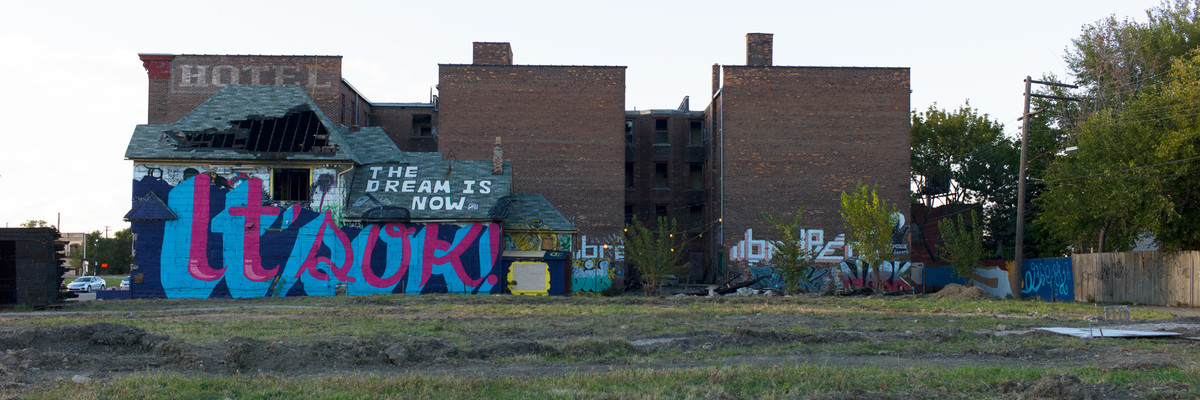
Eighth International Conference on The Constructed Environment
- 2018 Special Focus: Urban Regeneration (UR) – between Regeneration and Resentment
- 24–25 May 2018
- Wayne State University, Detroit, USA
Days of paper presentations, workshops/interactive colloquia.
Delegates from all over the world who attended the Eighth International Conference on The Constructed Environment.
Countries represented.
"Resentment becomes a lengthening pole between them and us; the have consumer and the have-not consumer. Resentment calls up mass movements, more systems take command… pressure groups thrive in unidentified resentment…gangs form in the void where the community ought to be and is wanting."
Alison Smithson, “Collective Design: The Violent Consumer, Or Waiting for the Goodies”, Architectural Design, (nº 5, 1974, pp. W274-279), p. 277.
The history of Urban Regeneration (UR) in contemporary cities is a cyclical one. We have repeatedly seen deprived areas in our cities demolished in a circularity process of destroying the “bad” old past in order to generate a promising new “good” future. We have seen this process happening mainly in areas that are targets of economic pressure, mostly related to fragile social/working housing and their communities. This is a process which makes, and simultaneously unmakes, the environment. In-between people are displaced and community bonds are dismantled.
This theme aims to make the problem of what is hidden under the persistent "label" of UR visible, and to bring it to discussion. Although this process is always presented as a positive outcome for the evolution of cities, something which enhances the quality of life of urban communities, we intend to begin a conversation that addresses how UR is also catalyzing a continuous process of loss, not only related to public spaces, but also leading to increased resentment among communities. Both are opposed to the so-called process of progression.
To address this important issue, cross-disciplinary proposals, both theoretical and practical, are welcomed. Work from research-based contexts to concrete engaged transformation projects that bring to the forefront the complexity of this problem.
The Eighth International Conference on The Constructed Environment featured plenary sessions by some of the world's leading thinkers and innovators in the field.

Director, Urban Studies Program, Wayne State University, Detroit, USA
"Placemaking and Gentrification in Detroit"

Executive Director, Detroit Future City, Detroit, USA
"Who Gets to Decide? Alternative Land Use Strategies as a Galvanizing Force in Detroit"
For each conference, a small number of Emerging Scholar Awards are given to outstanding graduate students and emerging scholars who have an active academic interest in the conference area. The Award, with its accompanying responsibilities provides a strong professional development opportunity for early career academics. The 2018 Emerging Scholar Awardees are listed below.

University of Chicago, Chicago, USA

Naval Postgraduate School, Monterey, California, USA

California State University, Long Beach, USA

University of Montreal, Montreal, Canada

Michigan State University, East Lansing, USA

Manchester Metropolitan University, Manchester, UK